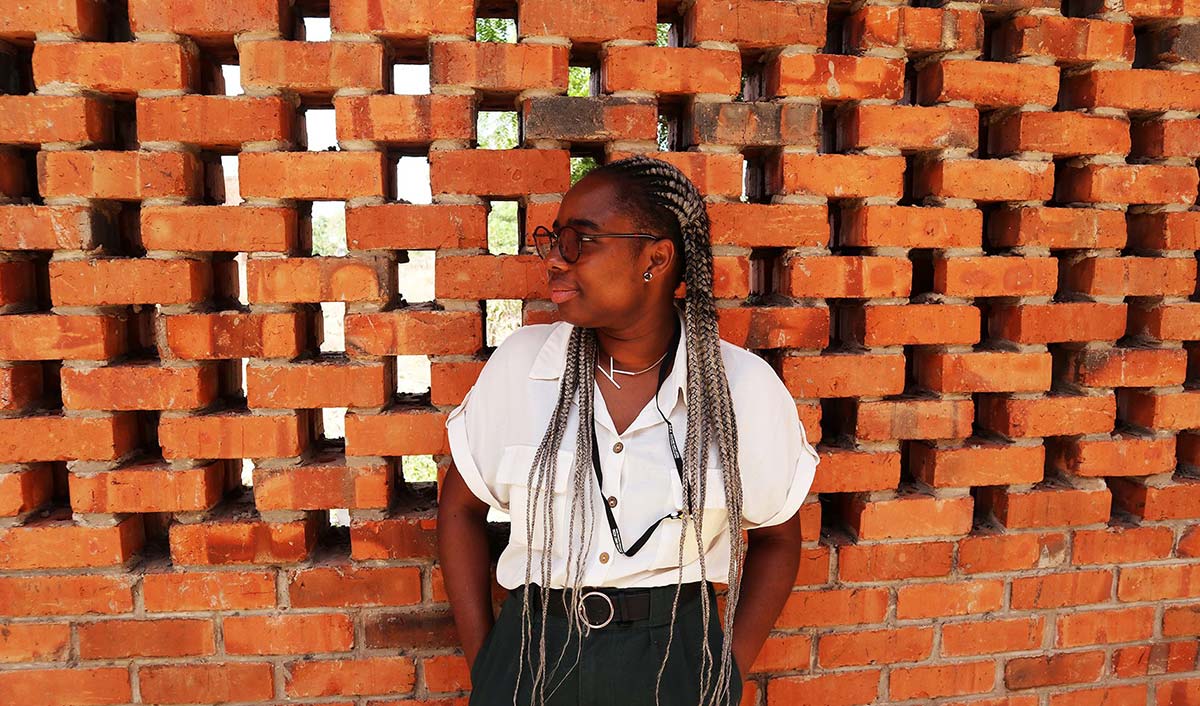
Hungry for Change
Associate Professor Lesli Hoey takes on global food inequality through multidisciplinary alliances, bold environmental research, and transformative student initiatives.
Throughout her academic career, Lesli Hoey has addressed inequality in food systems. Growing up with few resources in a remote area of Bolivia and rural Pennsylvania, she felt the impact personally. It’s a topic that Hoey, an associate professor of urban and regional planning at Taubman College, addresses in an introductory interdisciplinary course called Foundations of Sustainable Food Systems that she teaches with Andy Jones, associate professor of nutritional sciences at the University of Michigan School of Public Health (SPH) and Jennifer Blesh, associate professor of ecosystem science and management and food systems in the School for Environment and Sustainability (SEAS). Hoey makes sure to educate students on the perils of using the term “food deserts,” which she says doesn’t reflect institutional and structural racism — the role that planners and governments had in creating areas of cities with little access to affordable, fresh foods. She says the term food deserts “implies that this just naturally happened.” She prefers the term activists are using: food apartheid. “Food apartheid is saying that this was constructed; there were human actors and policies involved in creating a situation where we have many communities that cannot access affordable, fresh food.”
Hoey also supports underrepresented students studying food systems. She and colleagues in the Sustainable Food Systems Initiative secured over $1 million from the USDA, Rackham, and the three participating colleges — SEAS, SPH, and Taubman College — to launch the Transformative Food Systems Fellowship in 2022. The fellowship supports 12 students and focuses on experiential learning through field trips and workshops. By learning from food systems leaders in Michigan and abroad, Hoey says students learn “tools and strategies for mobilizing people, changing policies, and starting innovative nonprofits and businesses.”
The fellowship covers a significant amount of tuition and includes a stipend and funding for travel. Hoey says few master’s programs generously fund underrepresented students to study food systems. “This fellowship has been energizing,” she says. “It’s brought in some amazing students from around the country, as well as Detroit.”
Hoey says food crises, food apartheid and threats to people’s food sovereignty, biodiversity loss, and climate impacts on food systems all disproportionately affect people from low-income communities and people of color. The fellowship brings in students from the most affected communities. “To have their experience in the classroom has elevated the conversations that we were having. It’s invigorating to have them on campus.”
The cross-disciplinary fellowship forms cohorts of students from the three departments. “You’re never going to tackle complex food system problems adequately unless you involve people from different disciplines,” Hoey notes. If you don’t include those who have experienced those challenges, “you’re going to have blind spots and miss important insights.”
About two years ago, Hoey, Blesh, and Nancy Love, a professor of civil and environmental engineering at U-M, started pursuing a new direction: circular nutrient economies. This stems from Love’s longtime work on urine-derived fertilizer, or “pee-cycling.” Hoey says pee-cycling “could be as simple as peeing on a garden. But on a systemic level, urine diversion could have major implications for climate neutrality and adaptation, water pollution, reducing dependency on synthetic fertilizers, and more.”
You’re never going to tackle complex food system problems adequately unless you involve people from different disciplines.
— Lesli Hoey, Associate Professor
Her team received a $100,000 grant from the U-M Office of the Vice President for Research and a $650,000 National Science Foundation Convergence Accelerator grant. Hoey studies the regulatory and policy aspects of scaling up nutrient recovery. “You have to revolutionize the way we think about wastewater treatment systems and infrastructure” as well as impacts and changes to the fertilizer industry, she says. “It’s more than just changing our toilets and how we collect urine. It’s about changing the codes and regulations that govern all these different steps between our toilet and the farmer’s field.”
Hoey and colleagues are speaking with county health departments and state agriculture officials about possibly producing a urine-derived fertilizer. Initially, she thought this was just an “interesting academic exercise” but soon realized that many people are exploring urine cycling. She says communities have been circulating nutrients from wastewater systems for centuries, and she’s encouraged by places that conduct the practice on a large scale in the U.S., Europe, and Africa.
Her team aims to create a test bed, both on the agriculture side and on the processing and urine collection side. “We’ve been having a lot of fun thinking about what that could look like.” Possibilities include holding an annual “piss off” at Michigan Stadium against a U-M rival — a play-off of the “blood battle” in which U-M and Ohio State students compete to donate blood to the Red Cross.
Hoey is energized by her interdisciplinary collaborations, whether among faculty or students. “Having all these collective voices,” she says, “pushes us to think differently about things that we always take for granted.”
— Julie Halpert









